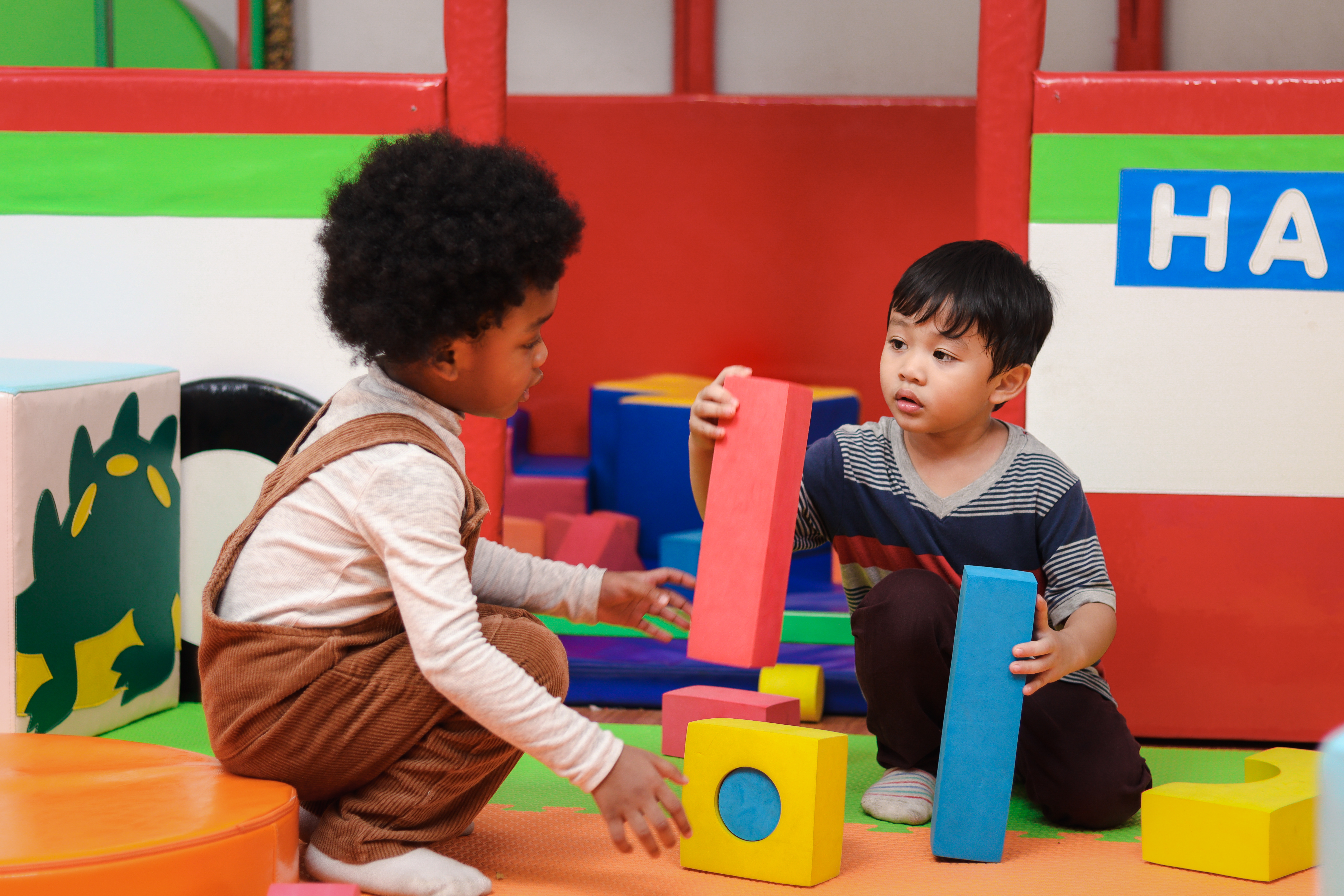
Social-emotional learning (SEL) plays a critical role in early childhood development and is a natural part of quality early education. When children develop emotional awareness and strong relationship skills early on, they’re better prepared to manage challenges, connect with others, and succeed in learning environments. For educators, social-emotional skills aren’t a standalone subject, but are integrated into daily routines, classroom interactions, and learning opportunities.
Promoting social-emotional learning doesn’t require special materials or complicated programs. It requires intention, consistency, and support. Here are six ways to strengthen social-emotional development in young children, including how professional development can help educators build these skills in the classroom.

Create predictable routines and safe environments
Young children need consistency to feel secure. When daily routines are predictable and expectations are clear, children are more likely to engage and participate because they know what to expect. A safe, calm environment helps them focus on learning instead of managing stress or confusion. Simple visual schedules, meaningful classroom jobs, and smooth transitions between activities can all support emotional regulation.
Teachers can reinforce structure through visual cues, gestures, and simple verbal reminders. For example, before transitioning to snack time, explain what’s about to happen: “It’s almost snack time, so let’s line up to wash our hands.” Combining clear directions with visual or physical cues helps children understand and feel confident in what comes next.
Model the behaviors you want to see
Children learn through observation and imitate the adults around them. When teachers model empathy, problem-solving, and self-regulation, children begin to mirror those skills in their own interactions. Narrating your thought process when solving a problem or naming your feelings can offer children a clear example of what it looks like to respond with care and understanding.
Help children name and express their emotions
Recognizing and naming emotions is a social-emotional development milestone. Using books, puppets, or everyday moments to talk about feelings helps children build emotional vocabulary. Simple tools like feeling charts, emotion cards, or check-in circles create consistent ways for children to express what they’re feeling.
For children developing language skills, matching tone with facial expressions or gestures can support communication. These techniques help all children feel seen and understood.
Nurture relationships through play and shared experiences
Relationships are built through connection, and play is one of the most effective ways to support that connection. Group activities, collaborative games, and storytelling circles create opportunities for children to work together, listen, and resolve small conflicts. These shared experiences build trust and support healthy peer interactions.
Use consistent, supportive responses to behavior
Behavior is communication, especially for young children developing the skills to express their emotions. When a child acts out, it’s often a response to an unmet need or a feeling they don’t yet know how to manage.
Rather than relying on punitive discipline, focus on calm, supportive guidance and proactive strategies to de-escalate challenging behavior. Acknowledge the child’s emotions, offer a moment to regroup, and help them understand what happened and why. This consistent, empathetic approach not only builds trust but also strengthens emotional regulation over time.
Invest in professional development that supports SEL
Supporting children’s social-emotional growth starts with giving educators the right tools and ongoing support. Effective professional development should reflect real classroom challenges and help educators understand the function behind behaviors. With practical, proactive strategies, teachers can respond with confidence and care.
Promoting social-emotional learning doesn’t mean adding more to a teacher’s day. It means recognizing and using the moments already happening to teach awareness, connection, and empathy. When teachers feel prepared and supported in their classrooms, children can thrive.
How FirstDay Learning Supports Educators in the Classroom
At FirstDay Learning, we help teachers integrate social-emotional learning into their daily routines—not as an extra task, but as part of responsive, intentional teaching. Our professional development includes evidence-based strategies, ongoing coaching, and practical applications educators can use from day one. Explore our by-the-seat training courses and register for upcoming events, or call (434) 989-2434 to connect with our team.



